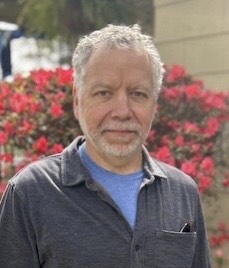
Kaitlyn Finchler
Staff writer
Music, love and hope can all be motivating and influencing factors in a person’s life. According to Week Eight’s poet-in-residence Ralph Black, how these ideas get translated into poetry is a different story.
Black will deliver his Brown Bag lecture at 12:15 p.m. today on the porch of the Literary Arts Center at Alumni Hall for the Chautauqua Writers’ Center. The author of two collections of poetry, his work has received the Anne Halley Poetry Prize from The Massachusetts Review and the Chelsea Poetry Prize. He said his lecture will be closely connected to his poetry workshop, “Let Us Now Praise the Mutilated World.”
“A lot of things in the world seem to be a little bit on the unglued side,” Black said. “There’s war, violence, famine and climate catastrophes. Some of those things can be overwhelming in a lot of ways.”
Poetry, he said, can be a “beautiful, momentary stay” against the confusion people may experience. He plans to illustrate this thought through a number of poems — both new and old — by various poets such as Walt Whitman, Robinson Jeffers and Mary Oliver.
“It’s not really going to be a funereal lecture, because that’s not really how I roll,” Black said. “(The lecture will be) more of a Q-and-A with myself — thinking about my reading and writing habits over the years.”
Throughout the week, Black’s workshop focuses on poems full of love and hope. As a professor emeritus at SUNY Brockport, he often tells writers to not just think about what they’re trying to communicate, but to think about what materials they can use to communicate it.
“I often say to students that poetry is an art form that really makes you slow down,” he said.
Black said he sees poetry as a way to “explore and surprise yourself,” and when writers are “really lucky,” once they start a poem they’re in a place they never thought they would be.
He said he wants his lecture audience to have a “sense of curiosity” and “heightened wonder.”
“Most people get through their lives, get through their days, perfectly well without thinking about poetry in any way,” Black said. “For me, as a teacher and a writer, I’m good at getting people to think about cracking the door into poetry open.”
A self-proclaimed “failed musician,” Black said he sees poetry as finding “a way back to some kind of musicality.” His mother was a concert violinist, while his father was in the symphony management business — early on in his career as the manager for the Buffalo Philharmonic.
“Classical music, especially as a young person, was just in the water that I drank,” Black said. “It’s a way that led me to fall in love with poetry because of the rhythm, cadence and musicality of language.”




